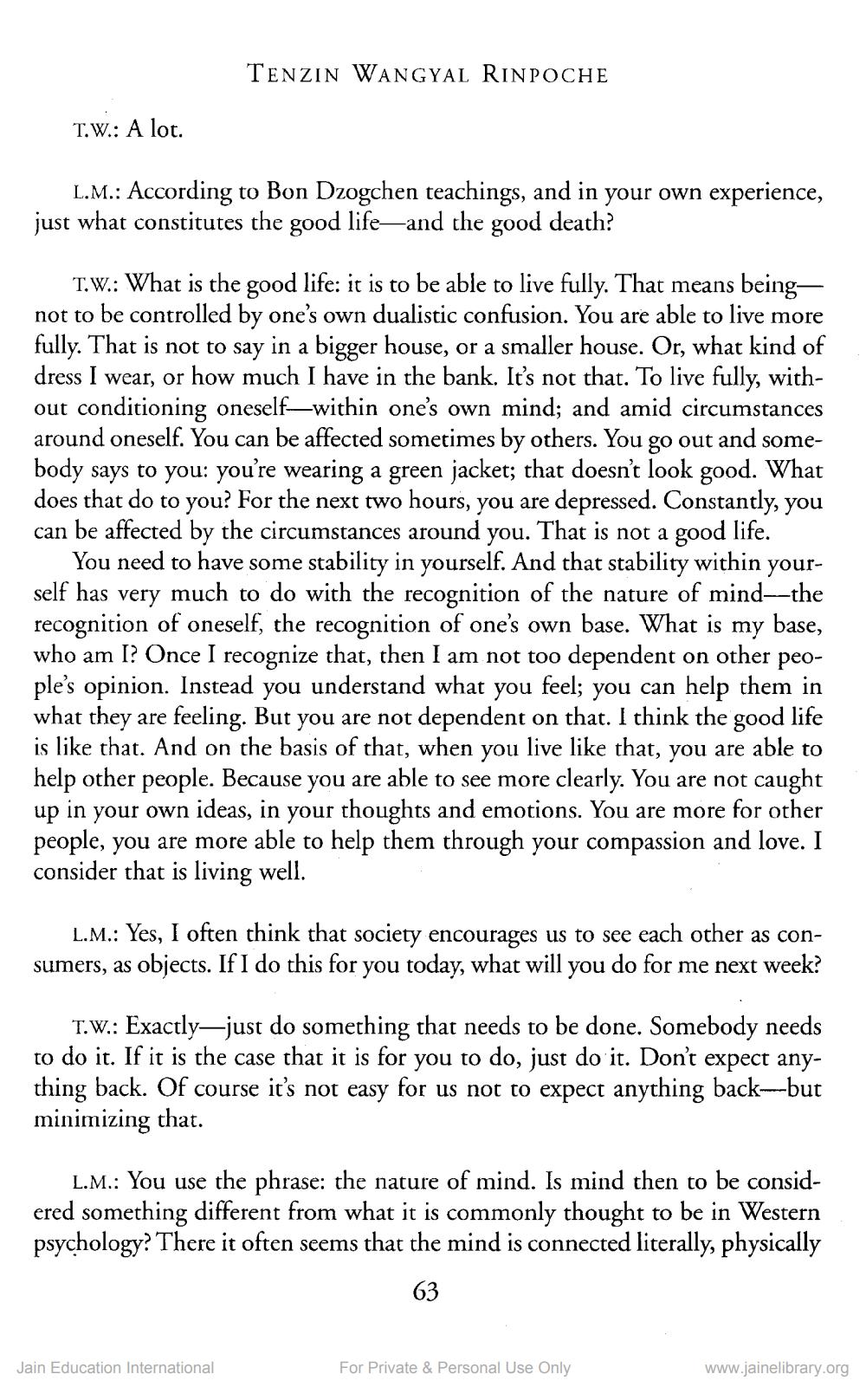________________
T.W.: A lot.
TENZIN WANGYAL RINPOCHE
L.M.: According to Bon Dzogchen teachings, and in your own experience, just what constitutes the good life—and the good death?
T.W.: What is the good life: it is to be able to live fully. That means being— not to be controlled by one's own dualistic confusion. You are able to live more fully. That is not to say in a bigger house, or a smaller house. Or, what kind of dress I wear, or how much I have in the bank. It's not that. To live fully, without conditioning oneself within one's own mind; and amid circumstances around oneself. You can be affected sometimes by others. You go out and somebody says to you: you're wearing a green jacket; that doesn't look good. What does that do to you? For the next two hours, you are depressed. Constantly, you can be affected by the circumstances around you. That is not a good life.
You need to have some stability in yourself. And that stability within yourself has very much to do with the recognition of the nature of mind--the recognition of oneself, the recognition of one's own base. What is my base, who am I? Once I recognize that, then I am not too dependent on other people's opinion. Instead you understand what you feel; you can help them in what they are feeling. But you are not dependent on that. I think the good life is like that. And on the basis of that, when you live like that, you are able to help other people. Because you are able to see more clearly. You are not caught up in your own ideas, in your thoughts and emotions. You are more for other people, you are more able to help them through your compassion and love. I consider that is living well.
L.M.: Yes, I often think that society encourages us to see each other as consumers, as objects. If I do this for you today, what will you do for me next week?
T.W.: Exactly—just do something that needs to be done. Somebody needs to do it. If it is the case that it is for you to do, just do it. Don't expect anything back. Of course it's not easy for us not to expect anything back-but minimizing that.
L.M.: You use the phrase: the nature of mind. Is mind then to be considered something different from what it is commonly thought to be in Western psychology? There it often seems that the mind is connected literally, physically
63
Jain Education International
For Private & Personal Use Only
www.jainelibrary.org




